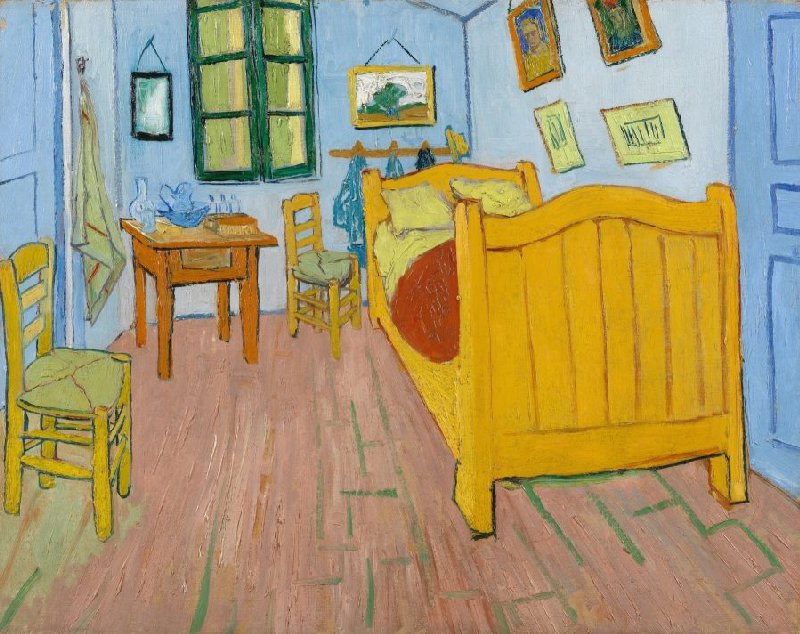10 Tips for Better Sleep

In spring 2015, during my time as a software engineer, I struggled to meet project deadlines. So I worked late hours, sometimes until 3 a.m., and also during weekends. The only exception was Easter Sunday.
While tourists from across Ukraine visited Uzhhorod to enjoy the beauty of the pink cherry blossoms in April, I only saw them online.

After three months of overtime without proper breaks, I felt exhausted, anxious, and struggled to fall asleep. This lack of sleep only worsened the situation, as I couldn't find the rest I desperately needed.
I discovered my limitations and made my health a priority:
- I took a vacation
- I refused to work overtime when my manager asked me to do project that required 3 months in 2 weeks
- I started doing yoga and meditations to relax more
- I took short breaks (Pomodoro 🍅 technique) during the day to prevent fatigue
Now, as psychologist supporting my clients, I've noticed that some of them face similar sleep difficulties, especially when they're overwhelmed by work, chores, and the desire to be the best parents for their kids.
Stress, burnout, and mental health issues can disrupt sleep, causing increased fatigue, cravings, conflicts, and even more mental health challenges. This creates a harmful cycle that can worsen your health.
The good news is that adjusting your daily routine and practicing good sleep habits can significantly improve your sleep quality.
Here are 10 scientifically proven tips that I use and recommend to my clients that will help you get a good night's sleep, along with Van Gogh's paintings to bring you aesthetic satisfaction.
1. Stick to a Sleep Schedule
Going to bed and waking up at roughly the same time (+- 30 minutes) will program your body for better sleep. Try to go to bed when you feel tired and sleepy.
Sometimes we take naps during the day if we haven't slept well, but if we do it regularly, it can negatively affect the quality of our night's sleep.
2. Create a Comfortable Sleep Environment

Your bedroom should be a calm place for sleep, sex, or masturbation. Like any other physical activity, sex makes us sleepy.
For quality sleep, the bedroom should be as quiet and dark as possible.
To check if it's dark enough, stand on one side of the bed and look at the opposite wall; if you can see it, the room is not dark enough. Blackout curtains or blinds can be helpful, and if that's not possible, such as during travels, then consider using a sleep mask.
Remove all electronics that emit light. If you can't remove the item, turn it away from the bed or cover it.
If there's noise in the bedroom, such as from cars outside, pets, or a teenage neighbor playing computer games and shouting with excitement, you can use earplugs or play white noise.
The optimal temperature for the bedroom is 18-24 degrees Celsius, but of course, this is individual. Ventilate the room before sleep so it's not too warm and has fresh air.
3. Make Sure Your Bed is Comfortable
It's difficult to sleep well if the mattress is too soft or too hard, or if the bed is too small or old. Pillows, blankets, and sheets should be comfortable and pleasant to touch, not causing discomfort or pain in the back or neck.

4. Get Sufficient Activity During the Day
Adequate mental and physical activity promotes feelings of fatigue and sleepiness. Moderate activities such as swimming or taking a walk help release the tension accumulated during the day.
5. Reduce Caffeine Intake
Try to avoid consuming tea, coffee, energy drinks, and dark chocolate after noon. Caffeine affects the process of falling asleep and interferes with deep sleep. Instead, try herbal tea or warm milk.
6. Avoid Alcohol And Overeating Before Bed
Too much food or alcohol, especially late at night, can negatively affect the quality of sleep. Alcohol may help you fall asleep, but it disrupts your sleep later in the night. Try to have dinner at least 3 hours before bedtime and avoid alcohol for a minimum of 5 hours before bedtime.
7. Limit Smoking
Nicotine is a stimulant. People who smoke take longer to fall asleep, they wake up more often, and have more disturbed sleep.

8. Ensure You're Relaxed
Usually, we don't pay much attention to how relaxed we are - we turn off the TV or put away our phones, brush our teeth, take a shower, and go to bed. However, relaxation (30-60 minutes before bedtime) is a critically important stage of sleep preparation. There are countless ways to relax:
- A warm (not hot) bath will help your body reach the ideal temperature for sleep.
- Planning for the next day will help organize your thoughts and clear your mind. Optionally, you can keep a journal where you write about your emotions, thoughts, physical sensations, and behavior.
- Relaxation techniques, such as yoga nidra or similar audio recordings, help relax thanks to calm hypnotic text, soft music, and pleasant sounds.
- Relaxation exercises, such as Jacobson's relaxation or stretching, help relax the muscles.
- Reading a paper book or listening to the radio helps distract and relax the mind.
- Avoid using smartphones, tablets, or other electronic devices at least an hour before bed, as blue light from screens suppresses the production of melatonin - the sleep hormone, thus deteriorating its quality. It's even better to brush your teeth in a bathroom with dimmed light.

Anything that relaxes you will help you fall asleep faster and sleep more soundly.
9. If You Can't Sleep, Get Up
Don't lie in bed worrying about not being able to fall asleep. Get up and do something that relaxes you until you feel sleepy.
10. Keep a Sleep Diary
Record your bedtime, wake-up time, your feelings, and actions before and after sleep. This can help identify activities that promote or hinder good sleep.
If insomnia lasts more than 4 weeks, see your family doctor.
💡 Find out more about whether you can handle sleep difficulties on your own or if you need to speak with a professional in the arcticle Difficulties with Sleep: Should I See a Doctor or Will It Go Away?
Wishing you restful sleep :)
Recommendations from nhs.uk and sleepstation.org.uk.